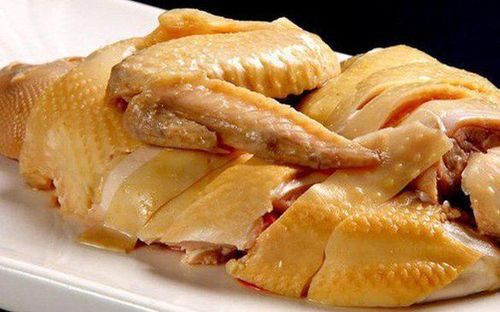This is an automatically translated article.
To have an effective training process, you need to make sure that your body is fully supplied with the energy and nutrients it needs to maintain training. This can be done when you apply the nutrition rules below.
1. Rule of nutrition 1: Provide adequate nutrients for the body
Nutrition when training is not provided in a reasonable diet can cause the body not to receive enough vitamins, minerals, and other nutrients, affecting your ability to exercise effectively and your health.
Refueling for activities is made easy by following healthy eating rules such as:
Eat plenty of fruits and vegetables Consume lean protein Eat healthy fats Provide whole grains Drink a lot of water
2. Nutritional Rule 2: Fuel up (even if your goal is to lose weight)
You need to give your body the energy it needs to do what it wants to do, even when trying to lose weight.
Skipping diets can reduce muscle mass, bone density and cause feelings of fatigue. This can increase the risk of injury and illness, increase recovery time, and cause hormonal problems and menstrual irregularities.
Ensure the diet plan provides enough calories needed for you to exercise effectively, limit the risk of injury, strengthen resistance to maintain a healthy body.

Một quy tắc dinh dưỡng là ăn kiêng lành mạnh để đảm bảo việc tập luyện an toàn
3. Nutritional rule 3: Love carbs
Research over the past 50 years has shown that carbs provide many benefits during intense and prolonged exercise. In fact, the more active you are, the more carbs you need.
What about the tendency of athletes to eat low fat and low carb diets? Evidence shows that these diets do not promote effective exercise but also hinder higher activity levels. During exercise, carbohydrates fuel your brain and muscles.
Carbs for moderate training: If you are in good shape and want to fuel a daily light-intensity workout, eat about 3-5 grams of carbohydrates per kilogram of body weight. For example, a person weighing 68kg needs between 200-340 grams of carbs a day.
Carbs for intense workouts: If you exercise for more than 1 hour/day, you may need 6 - 10 grams of carbs per kilogram of body weight. For example, a person weighing 68kg needs 408 - 680 grams a day.
Choose healthy carbs like brown rice, quinoa, whole grain breads and pastas, sweet potatoes, fruits and vegetables.
4. Nutritional rule 4: Restore muscle mass with protein
Protein is important because it provides the amino acids the body needs to build and repair muscle. Most studies show that people who are active should eat 1.2 - 2 grams of protein per kilogram of body weight. That means a person weighing 68kg should eat 82 - 136 grams per day. People who are inactive should eat less protein. Aim for 0.8 grams per kilogram of body weight per day.
Good sources of protein are poultry (25g in 85g) and fish (20g in 85g). Those who avoid meat can try soybeans (20g per cup) and legumes such as beans, peanuts and chickpeas (about 15g per cup). Eggs, Greek yogurt, cheese, and tofu are also other good sources.
5. Nutrition rule 5: Don't ignore fat
Fats are essential for a healthy diet. Fats provide energy and help the body absorb vitamins. Some vitamins (like A, D, E, and K) actually need fat to function in the body. Accordingly, you should choose unsaturated fats. Good sources are avocado, olive and canola oils, flaxseeds and nuts.

Trong quy tắc dinh dưỡng, tuyệt đối không được coi nhẹ vai trò của chất béo lành mạnh
6. Rule of nutrition 6: Know what the body needs before training?
If you exercise less than 1 hour at a time, eating throughout the day will give you enough energy to exercise effectively. However, to avoid GI problems, you can avoid eating right before exercising. As a general rule, eat 1 to 3 hours before a workout, even if you're going to be doing continuous, intense activity like running a marathon.
7. Nutrition rule 7: Remember to relax 15 minutes after a workout
The body uses stored energy sources during exercise. After exercising, you need to restore those nutrients as soon as possible.
Research shows that eating protein-rich foods after a workout (within 15 minutes) provides the essential amino acids that help build and repair muscle. This can also increase stored energy for later draw.
Replenishing carbs and water is also essential after a workout. This can be done by drinking a smoothie.
To have an effective training process, the body needs enough energy and nutrients. Accordingly, you can apply the above rules to ensure the most benefits.
Please dial HOTLINE for more information or register for an appointment HERE. Download MyVinmec app to make appointments faster and to manage your bookings easily.
Reference source: mayoclinic.org













